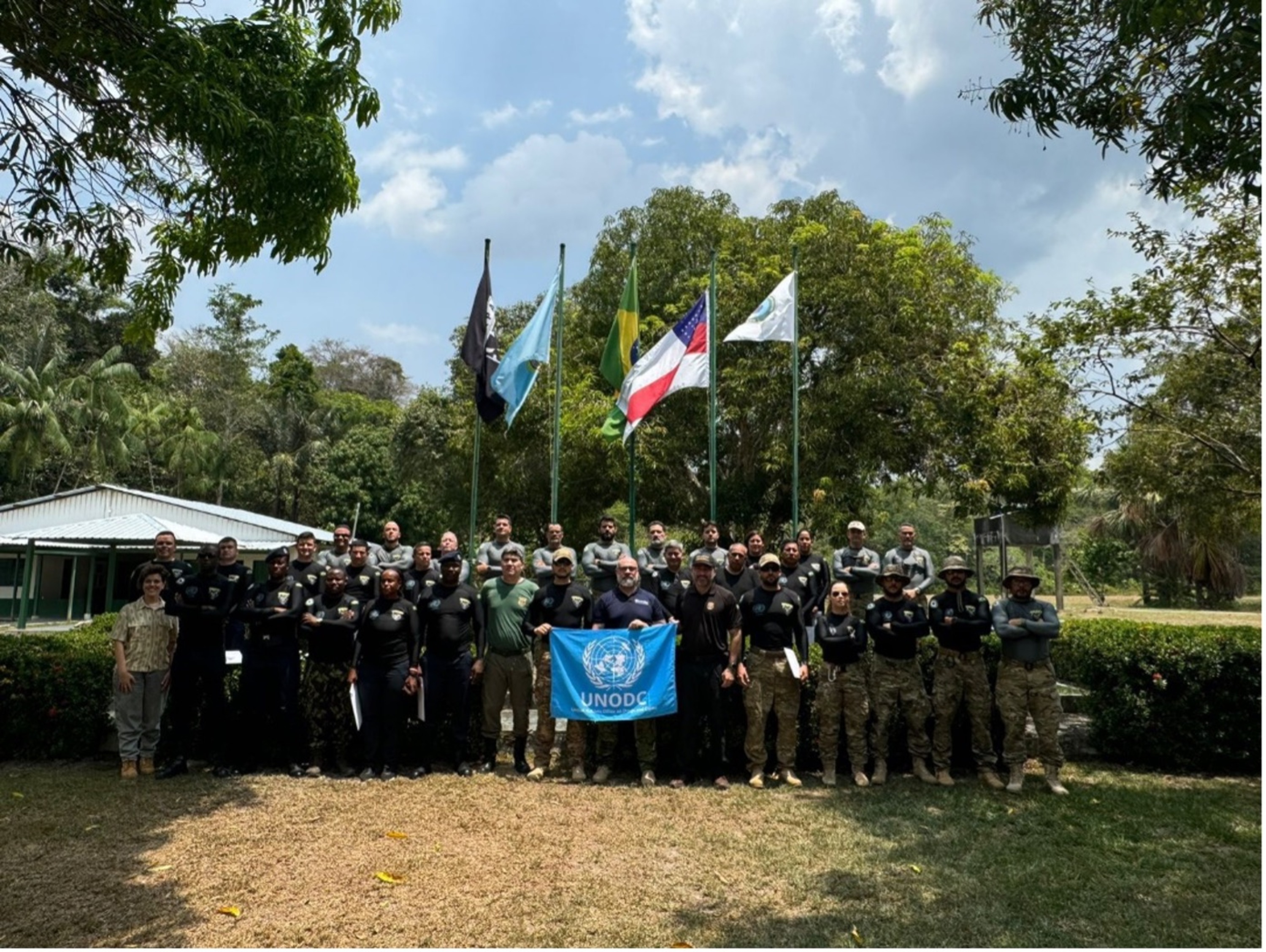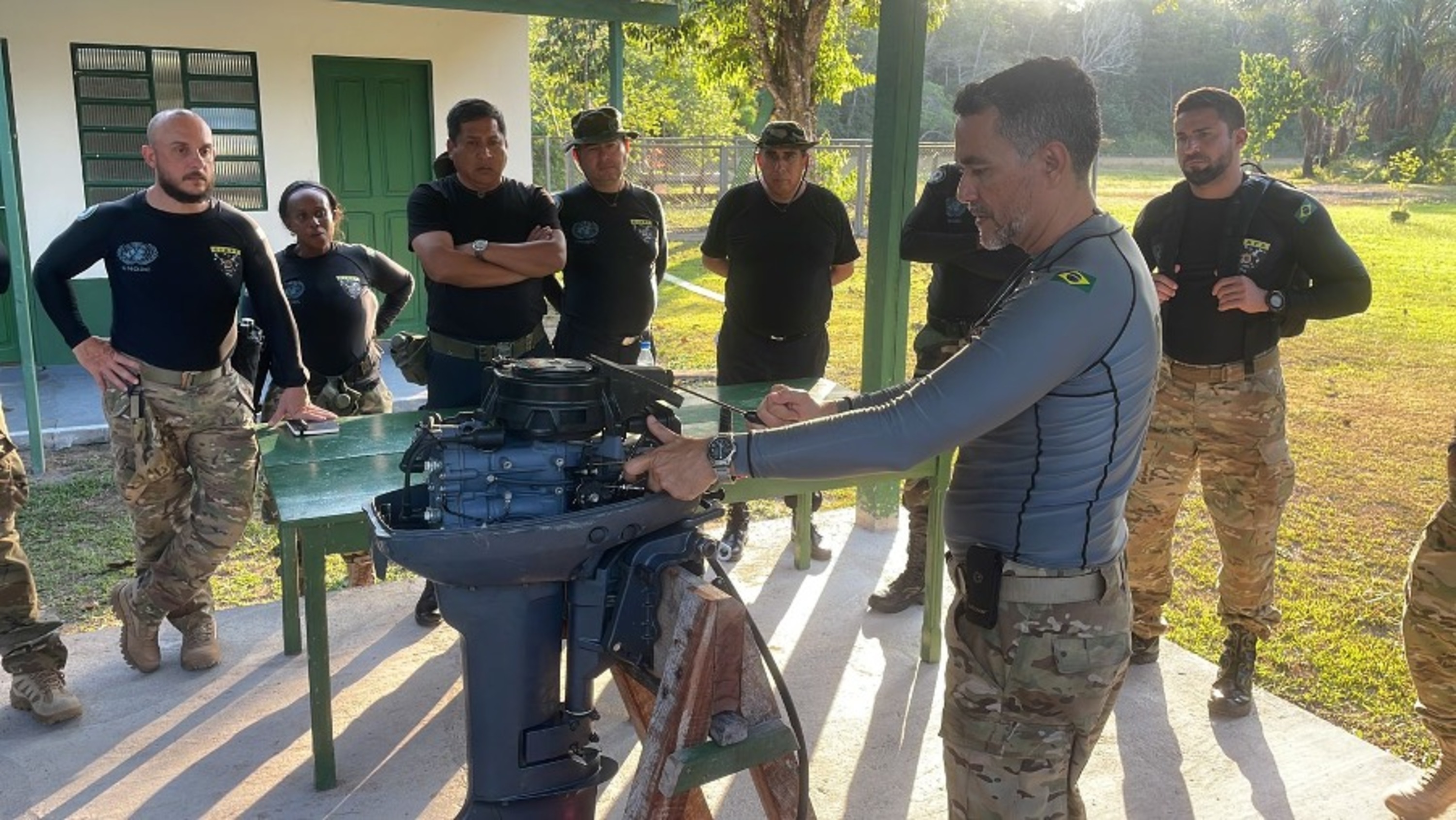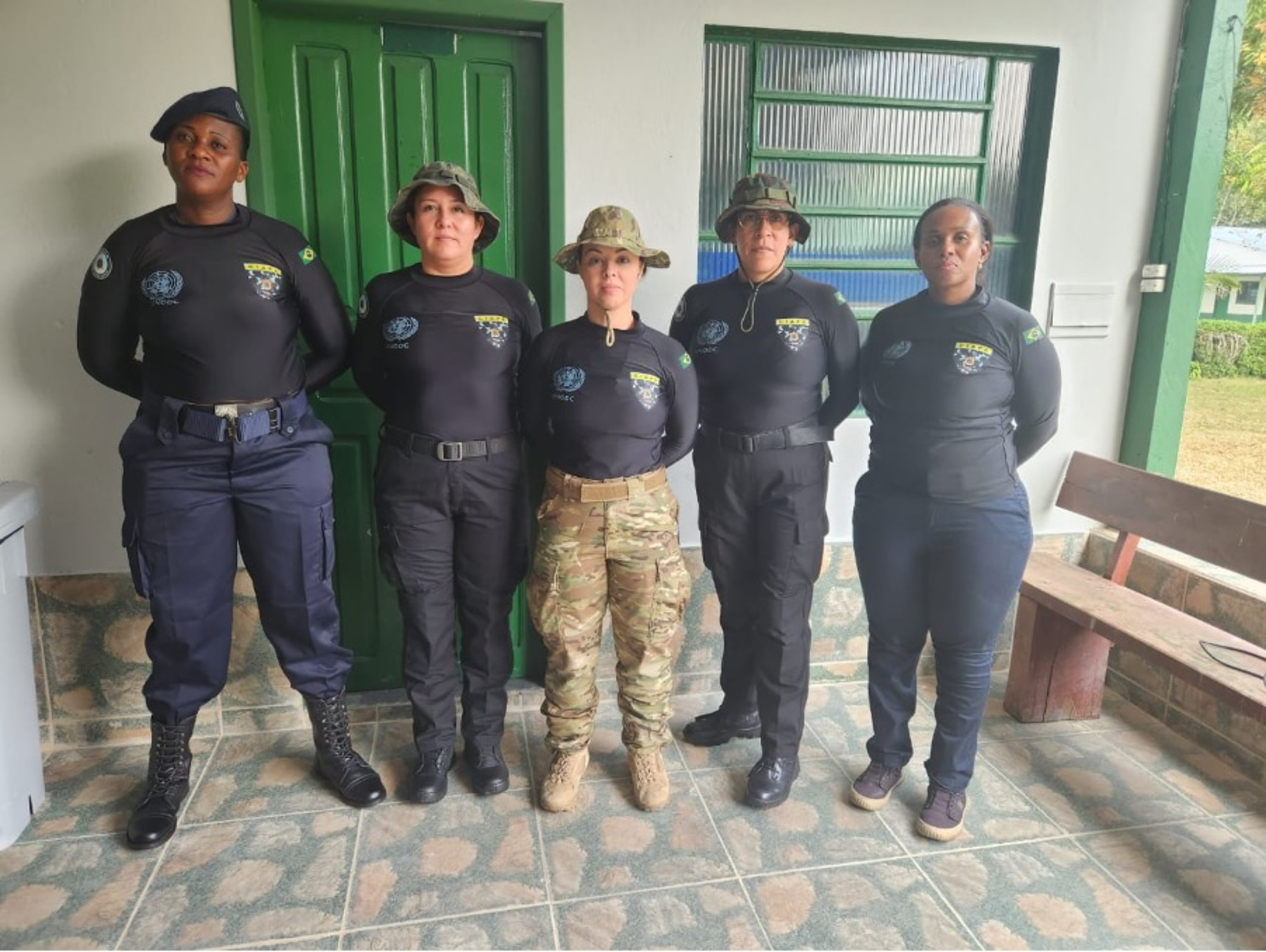
Brasilia, 10 September 2024 - The UNODC Global Maritime Crime Programme (GMCP) once again hosted an International Exchange on River Operations and Vessel Piloting, from 13 to 26 August, at the Federal Police's Environmental Police Integration and Training Centre (CIAPA) in Manaus, Amazonia State, Brazil.
This year, the program, which is the third of its kind, welcomed twenty-five officers from Brazil, Colombia, Mozambique and Peru. Five officers from three Mozambican law enforcements agencies: the Navy, the Maritime Police and the Maritime Institute had a chance to take part to this international exchange.
The main objective of the training was to promote South-South and tripartite cooperation, focused on enhancing the operational and tactical capabilities of law enforcement agencies to combat transnational criminal activities such as deforestation, drug trafficking, and other illicit operations.
Brazil, with its vast and complex riverine systems, including the Amazon River—the world's largest by volume—has developed advanced capabilities in riverine law enforcement. The Amazon Basin, with its dense network of rivers and tributaries, poses unique challenges that require specialized skills in navigation, vessel operations, and combating transnational organized crime.
Mozambique, though different in its geographical context, faces similar challenges. The country is home to significant rivers such as the Zambezi, Rovuma, and Limpopo, which are vital for transportation and economic activities but are also vulnerable to exploitation by criminal groups.
The training was designed to address the unique challenges faced by law enforcement in riverine environments, with a specific focus on detecting and responding to deforestation and associated illicit economies. The curriculum was comprehensive, focusing on several key areas such as: river interdiction, boarding vessels, piloting different types of vessels, knots and moorings, orientation and navigation and combating drug trafficking and environmental crimes.
"The training was exceptional, featuring skilled instructors and a focus on hands-on practice. This approach allowed us to quickly adapt to operating boats and two-stroke outboard engines, as well as effectively conducting vessel boardings in the search for drugs and weapons associated with transnational crimes", commented an officer from the Mozambique Navy.

“The experience gained will serve as a lesson for future boarding practices in our waters, which could reverse the current situation regarding the security of our coastline. It will also contribute to a new vision of vessel searches and pilotage, as well as security in accordance with international standards and laws” mentioned one of the Mozambican participants.
Moreover, the training is expected to foster ongoing collaboration between Mozambican and Brazilian authorities, further strengthening the ties between these nations in their shared fight against transnational crime, specifically against cocaine trafficking which expands through new hubs and routes from South America to the Eastern Coast of Africa.

The GMCP helps Member States to improve and coordinate their efforts against maritime and riverine crime. Implemented by UNODC, GMCP is present in 90 countries in Latin America and the Caribbean, Africa, Asia, Europe and Oceania.
Maritime crimes addressed by GMCP include drug trafficking; firearms trafficking; human trafficking and migrant smuggling; crimes in the fishing sector; environmental crimes; and chemical, biological, radiological and nuclear threats. For more information and results by regions and continents, visit the GMCP global website (in English).
This training was made possible thanks to the support of the Bureau of International Narcotics and Law Enforcement Affairs (INL) of the United States of America for Mozambique and the Law Enforcement Assistance Programme to Reduce Tropical Deforestation (LEAP) of the Government of Norway for Brazil, Colombia, and Peru. The training aligns with UNODC Strategic Vision for Africa 2030, specifically investment area number 2, which aims to "Secure the Safety of People from Organized Crime, Terrorism, and Violence” and UNODC Strategic Vision for Latin America and the Caribbean 2022-2025 .